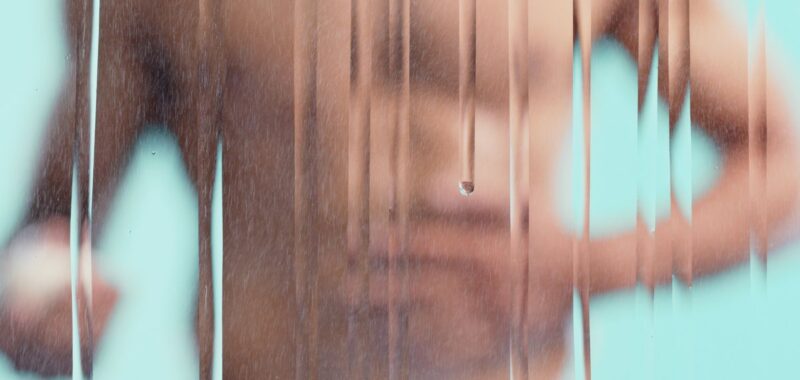Whether walking on a hot afternoon, taking a class at the gym or breaking out in flop sweat from a bad case of nerves, the sweat on your skin is doing an important job.
“Sweat is necessary to cool the skin,” said dermatologist Dr. Claire Wolinsky. “Glands in the skin secrete sweat to cover the surface, and then they evaporate to bring down our temperature. Sweat contains antibacterial properties, and it can even be moisturizing. It can give skin a glow, thanks to the urea in it.
The praises of sweat continued to pour in from the skin experts we spoke to. “Sweat plays a crucial role in maintaining healthy skin,” said dermatologist Dr. Mini Amin. “It doesn’t just regulate temperature, but it also flushes out toxins.”
So, how did sweat ever get such a bad rap? It’s that whole “stink” thing, right? It turns out that’s not sweat’s fault, either.
Dermatologist Dr. Michelle Henry explained: “Sweat doesn’t stink, but the bacteria that lives in underarms and other sensitive areas love to eat the oil created when we sweat, creating the byproducts that are stinky.”
With that in mind, we wondered: How soon should you shower after a sweat session to keep your skin as healthy and fresh-smelling as possible?
Turns out, there are two kinds of sweat.
It may look and feel the same on your skin, but eccrine and apocrine sweat are very different. One contributes to considerably more “air pollution” (in the form of body odor). Dermatologist Dr. Hadley King explained it like this:
When you’re so hot you’re melting, it’s eccrine: “Most sweat is produced by our eccrine glands, which are distributed throughout the skin, but are concentrated on the palms, soles, forehead and armpits,” King said. “Eccrine sweat is composed of water and small amounts of salt, protein, urea and ammonia. When body temperature rises due to a warm environment or physical activity, the autonomic nervous system signals eccrine sweat glands to produce sweat that will cool the skin and help bring body temperature down.”
When you want the floor to open up and swallow you, it’s apocrine: “The majority of stress-related sweat is from apocrine glands,” King said. “Stress triggers adrenaline, cortisol and other stress hormones, which trigger those particular sweat glands. They produce more concentrated secretions, richer in lipids and proteins, and are mostly located on the armpits, groin and breast area. This type of sweat is more often associated with body odor, which happens when bacteria break down our sweat into fatty acids.”
How fast do you need to shower after sweating? You’ve got an hour max.
No matter what caused your current damp state, the clock is ticking any time you begin to sweat. That’s why dermatologists recommend getting yourself cleaned up as soon as possible. “The best time to rinse off after an intense workout is immediately afterwards,” said dermatologist Dr. Brendan Camp.
How much time do you have, exactly? “Clean up is within an hour after becoming sweaty,” Amin said. “If you don’t cleanse the skin immediately after getting sweaty, bacteria will mix with the sweat and cause irritation, clogged pores and body odor.”
If you’re sweating for more than an hour, the goal should be to shower as quickly as possible after you stop because bacteria is already on the job.
Your clothes play a role in this perfect sweatstorm, too. Dermatologist Dr. Abrahem Kazemi pointed out that excessive sweating can cause synthetic-fabric workout clothes to stick more easily to the skin. That’s bad, he said, “because it can block pores, leading to folliculitis and back acne.”
And speaking of acne, the longer you wait to get clean, the more likely you will have acne breakouts, especially if your skin is already oily. It can get even worse than that, Henry said: “Letting sweat and sebum build up is a quick way to not only break out, but also to encourage bacterial and yeast growth on the skin, leading to candida intertrigo or tinea versicolor, a fungus that really loves sweaty environments.”
If you can’t get to a shower, here are some short-term solutions:
“Non-alcohol-based wipes with micellar solution can be helpful to cleanse the skin in between showers,” Wolinksy said. “If the skin is acne-prone, try wipes with salicylic acid, witch hazel or glycolic acid.”
And if you really can’t make it to the shower, perhaps bring along a clean new ‘fit’ to tide you over. “It may help to change into a set of clean, dry clothes to reduce the risk of skin irritation or growth of microorganisms,” Camp said.
But don’t overdo it.
All this talk of cleaning off sweat may have you dreaming about hopping into the newest shower a few times a day. But take it easy, these experts said.
“In a warm, humid environment, up to two brief showers per day can often be tolerated, particularly if the water is lukewarm, not hot, and you use either gentle cleansers or none at all. Always apply moisturizers immediately after each shower, too,” King said.
Be careful with the products you use, Wolinksy said. “Look for soaps that have glycerin, ceramides and any other hydrating ingredients. They’re less likely to strip the skin of moisture, so they’re safer to use if you take multiple showers.”
Support Free Journalism
Support HuffPost
Already contributed? Log in to hide these messages.
Try this final hack to make your morning fresher.
If you’re truly troubled by excessive sweat, follow this hygiene hack from Camp: “Consider applying an antiperspirant to dry skin at night instead of in the morning,” he said. “When applied at night, antiperspirants may sweat glands more effectively than during the day.”
And if things are getting too moist, he suggested seeing a board-certified dermatologist. “They can provide an evaluation of and treatment for excessive sweating, a condition called hyperhidrosis.”
Support Free Journalism
Support HuffPost
Already contributed? Log in to hide these messages.

